She doesn’t call you when she promised. It’s not just today. It’s been happening for months.
He didn’t show up to your latest important event, and he wasn’t at the last one, either.
Your beloved knows how important anniversaries are to you — you’ve already explained how it makes you feel when she forgets your birthday year after year, even though she seems to remember everyone else’s.
It’s Valentine’s day again, and your boyfriend is skiing with his parents who don’t really seem to embrace you as a future son-in-law and quietly exclude you from family events.
Your spouse took off to Las Vegas for a work conference as you’re about to undergo a medical procedure you’ve had scheduled for months, and you’re in a position, yet again, to reluctantly ask someone else to help you through a stressful circumstance in his absence.
Should You Stay or Go?

Whatever it is, you feel lost, hurt, and confused. Something’s wrong with your relationship. It’s eating away at you. Briefly, you may feel the promise of the couple you could be, the potential there, theoretically—if only you could function more as a team. But then there’s a fight, a break, a long disconnection, a hurtful action, or a searing innuendo. You don’t know what to do. You wonder if you could leave and start over with someone else… except that the thought of separation frightens you. You feel lonely and depressed. It’s scary to imagine.
Talking about the problem doesn’t seem to help. Or maybe you haven’t tried to really talk about the problem because you’re convinced talking won’t make a difference and may even make things worse if your partner gets reactive or defensive. Or maybe you simply can’t bring yourself to talk about the problem — it feels shameful or embarrassing. You blame yourself. Why can’t you figure it out? This shouldn’t be happening. You should be able to fix it.
You’re not that guy or gal who needs things like reliability, intimacy, connection, and responsiveness in your relationship. You’re strong, self-sufficient, and independent. You don’t want to reveal how much your partner’s behaviors hurt you, so you swallow the pain and stew in low-grade resentment. Your heart shuts down, you look for evidence that your partner is failing you and find plenty of it: they’re too particular, too demanding, too unambitious, too concerned about appearances, not concerned enough. They’re too quiet, too loud. Too forgetful. Too self-absorbed, too self-effacing. Too, too, too.
You’re seeing invisible mini red flags hovering over them, superimposed on their movements, their words, their body, their face. You pull away emotionally, or find yourself doing back to them, in some passive-aggressive way, what you’re convinced they’ve intentionally done to you. Their behaviors seem to have been consciously designed to be hurtful.
Their failure to love you feels personal.
Even When You’re Stuck, You Have Options

It’s easy to get caught up in stories, confusion, and uncertainty when your well-being seems to hinge on another person’s decisions and behaviors. Naturally, it can be hard to know what to do in situations when you depend on someone but find them unpredictable or undependable. But you do have choices. Here are five of them.
- Stay and Do Nothing. Sometimes we’re not ready for change, or for the loss that comes with change, or even for what we stand to gain if we take the necessary steps to let go of a relationship that isn’t working and move on. In this case, we do very much have the choice to stay and do nothing. Some people make the mistake of thinking of this choice as non-choice, but it’s not. It’s chosen. You may as well realize when you’re choosing it.
- Leave & Do Nothing. This is a choice, too. If you make it, know that you’ll likely re-enter a similar relationship, with similar painful patterns, even if the dynamic takes on a new form. Recognize that it may not yet be time for you to let go of certain dreams and fantasies you harbor about love, relationships, and yourself, and that you may need to cycle through some more of the same types of difficult relational experiences before you’re ready to do the work of conscious growth.
- Stay & Work on Yourself (without your partner’s buy in). This is a powerful choice someone can make in a relationship that isn’t working. We tend to think that in order to change a relationship, we need our partner to form an alliance with us. In fact, we can fully own where we are in a relationship and do a lot of work on our own. We can work on our beliefs, our perceptions, our thoughts, our large and small choices in the relationship. We can work on our expectations, our presumptions, our assumptions and projections. There are many ways to work on oneself, even when your partner isn’t doing their own work. Tools for self-work include meditation, yoga, breathwork, individual therapy, dance, journaling, bibliotherapy, group therapy, spiritual practices, training the mind through concentration practices, in-person and online workshops and more.
- Stay & Work on Yourself (with your partner’s buy in). Similar to the last option, we can choose to turn toward rather than away from the challenges in the relationship and see them as entryways to greater self-awareness and self-knowledge. In this case, you can do this with your partner’s support, and they can do it with your support. Additional tools to the ones I’ve already listed in the last option include couples therapy, relationship building rituals, couples intensives and retreats, and the year-long program of weekly exercises in my book, No More Fighting: 20 Minutes a Week to a Stronger Relationship.
- Leave & Work on Yourself. You can honor the relationship for what it has given you, for the ways it has helped you grow, and you can make the decision to accept the reality that it’s just not working, and allow it to end. There are relationships for a reason, a season, and a lifetime. If you deeply and truly know that you’ve done your work in this relationship and it fits into the “reason” or “season” category of relationship types, it may be time to leave. Let yourself make the break and give yourself permission to feel whatever emotions come up for you: guilt, grief, sadness, happiness, fear, relief. Process the loss. Cycle back through the self-work portion of #3 above and take time to understand yourself and what may have been underlying the unfulfilling or painful dynamic with your partner in the first place.
Whatever you decide, it’s a choice. It’s your choice. Even when you’re stuck, you always have a choice. Owning your decision is what gives you the power to either accept what’s happening or change it by letting go of what doesn’t serve you, transforming your relationship, and making space for what’s next.







